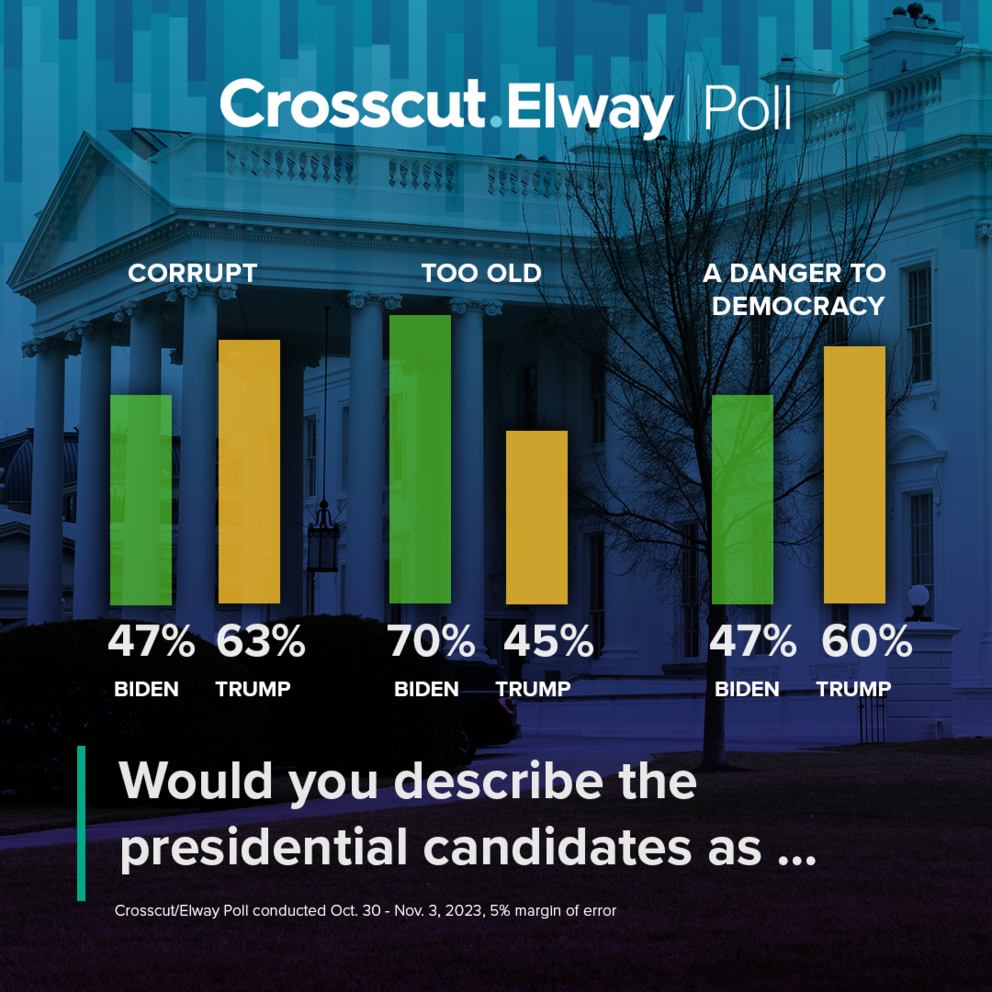In a mark of how deeply political polarization has taken root here in historically moderate Washington, partisans of both parties consider the presumptive nominee of the other party to be a literal threat to the country.
In the recent Crosscut/Elway Poll, 88% of Democrats considered former President Donald Trump a “danger to democracy” and 83% of Republicans said the same of President Joe Biden. Similar majorities in both parties also thought the opposing candidate was corrupt. Long gone are the days where politicians spoke of “my worthy opponent.”
Washington has a long history of political independence. We voted for the Bull Moose Party in 1912 and were among the leading states to vote for John Anderson in 1980 and Ross Perot in 1992 and 1996.
Washington used to be a place where people talked about “voting for the candidate, not the party.” That has changed in just one generation. Before 2000, Democrats and Republicans split the electorate in Washington. In 1964, Washington voters famously voted for Republican Dan Evans for governor and Democrat Lyndon Johnson for president in 1964.

Washington voted for Ronald Reagan in 1984, then Michael Dukakis in the following election. Control of the state Legislature toggled back and forth between the parties. Between 1992 and 2004, Republicans had majorities in both state houses three times, Democrats had control twice and they split it eight times. Since 2005, Democrats have controlled both houses 13 times and the parties split control five times, but not since 2018.
We don’t register by party here, so party identification is slippery to measure. I have been asking the same party identification question in my polls several times a year since 1992: “If you had to register by party in order to vote, would you register as a Democrat, Republican or Independent?”
Throughout the 1990s, party identification was functionally even, averaging 31% Democrats and 29% Republican. Democrats built a six-point advantage during the Bush administration, which grew to a 15-point advantage during the Biden administration.
Historically, Washington has had a sizable proportion of voters who do not identify with either party. The percentage of “independents” has hovered around 40% for 30 years, a figure that always entices third-party dreamers. But “independent” is not necessarily the same as “ticket-splitter.”
As partisanship has taken on stronger elements of personal identity, there are few real ticket-splitters these days. Our recent poll asked respondents how they intended to vote for president, U.S. Senate and U.S. House. Forty-eight percent of all respondents planned to vote only for Democrats, 35% only for Republicans and only 2% planned to split their ticket. Another 14% were undecided.
Since 2000, the average total vote for all Democratic candidates [BD2] in Washington has been between 54% and 57%. The average vote for Republicans has been 42% to 45%. So Republicans get about 15% more voters than identifiers on average, while Democrats get about 18% more.
These poll results are only for federal elections, where partisanship tends to be stronger. There may be more ticket-splitting in state and legislative races, which will be the focus of our next poll.
The findings make me wonder where, exactly, is that fabled middle that Joe Manchin and Larry Hogan are hoping to tap with the No Labels movement. While there is an equilibrium in national politics, and maybe some middle ground on particular issues, there may not be a politically viable center. Particularly this year.
If the risk of voting for a third-party candidate is that an actual “danger to democracy” moves into the White House, then who is going to take that risk?



